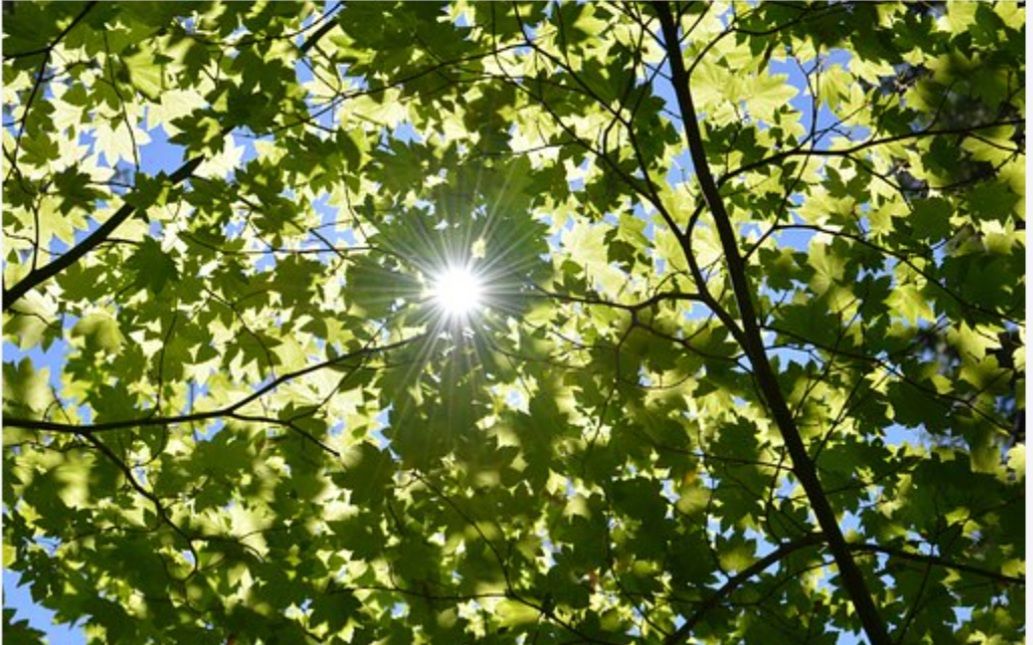In The Name of Allah, The Most Merciful, The Bestower of Mercy.
Allah, The Mighty and Majestic, said:
فَأَمَّا عَادٌ فَٱسْتَكْبَرُوا۟ فِى ٱلْأَرْضِ بِغَيْرِ ٱلْحَقِّ وَقَالُوا۟ مَنْ أَشَدُّ مِنَّا قُوَّةً أَوَلَمْ يَرَوْا۟ أَنَّ ٱللَّهَ ٱلَّذِى خَلَقَهُمْ هُوَ أَشَدُّ مِنْهُمْ قُوَّةً وَكَانُوا۟ بِـَٔايَٰتِنَا يَجْحَدُونَ
As for ‘Ad, they were arrogant in the land without right, and they said: “Who is mightier than us in strength?” See they not that Allah, Who created them was mightier in strength than them. And they used to deny Our Ayat (proofs, evidences, verses, lessons, revelations, etc.)! [Fussilat 15]
Imam As-Sadi, may Allah have mercy upon him, said:
This is a detailed account of the story of the two nations, Aad and Thamud. As for Aad, they were arrogant in the earth, together with their disbelief in Allah, their denial of His signs, and their rejection of His messengers. They subdued those – the servants of Allah – around them, oppressed them and were self-amazed with their strength.
وَقَالُوا۟ مَنْ أَشَدُّ مِنَّا قُوَّةً
They said: “Who is mightier than us in strength?
In response, Allah reminded them of a fundamental truth known to all:
أَوَلَمْ يَرَوْا أَنَّ اللَّهَ الَّذِي خَلَقَهُمْ هُوَ أَشَدُّ مِنْهُمْ قُوَّةً
See they not that Allah, Who created them was mightier in strength than them.
If Allah did not create them, they would not have existed. Had they contemplated their situation in a correct manner, they would not have been deceived by their own power, thus, Allah punished them in a manner befitting the strength in which they had placed their misguided trust. [1]
Imam Al-Baghawi, may Allah have mercy upon him, said: The statement of the Almighty:
فَأَمَّا عَادٌ فَٱسْتَكْبَرُوا۟ فِى ٱلْأَرْضِ بِغَيْرِ ٱلْحَقِّ وَقَالُوا۟ مَنْ أَشَدُّ مِنَّا قُوَّةً
As for Aad, they were arrogant in the land without right, and they said: “Who is mightier than us in strength?”
This was in response to Prophet Hud, peace be upon him, who warned them of impending punishment. They arrogantly claimed that their strength could protect them from such retribution, boasting of their tall and powerful physiques. In response, Allah said to them:
أَوَلَمْ يَرَوْا۟ أَنَّ ٱللَّهَ ٱلَّذِى خَلَقَهُمْ هُوَ أَشَدُّ مِنْهُمْ قُوَّةً وَكَانُوا۟ بِـَٔايَٰتِنَا يَجْحَدُونَ
See they not that Allah, Who created them was mightier in strength than them. And they used to deny Our Ayat (proofs, evidences, verses, lessons, revelations, etc.)] [2]
Imam Ibn Kathir, may Allah have mercy upon him, said: Allah, The Exalted, said:
فَأَمَّا عَادٌ فَٱسْتَكْبَرُوا۟ فِى ٱلْأَرْضِ بِغَيْرِ ٱلْحَقِّ
As for Aad, they were arrogant in the land without right.
Meaning: rebellious, insolent and disobedient. They said:
مَنْ أَشَدُّ مِنَّا قُوَّةً
Who is mightier than us in strength?
Meaning, believing that their physical strength and capabilities would protect them from Allah’s punishment.
أَوَلَمْ يَرَوْا۟ أَنَّ ٱللَّهَ ٱلَّذِى خَلَقَهُمْ هُوَ أَشَدُّ مِنْهُمْ قُوَّةً
See they not that Allah, Who created them was mightier in strength than them]- Meaning, they did not reflect on the fact that Allah, who created them, is indeed stronger than they are! Did they not contemplate the One whom openly declared their enmity against? For indeed, He (Allah) is Al-Adheem (Footnote a) who created all things and endowed them with the strength to exist, and His punishment is indeed severe. [3]
Imam Al-Qurtubi, may Allah have mercy upon him, said: The statement of Allah:
فَأَمَّا عَادٌ فَٱسْتَكْبَرُوا۟ فِى ٱلْأَرْضِ
As for Aad, they were arrogant in the land..
Meaning: without right – towards the servants of Allah, (towards) Prophet Hud, peace be upon him, and those who believed in him.
وَقَالُوا۟ مَنْ أَشَدُّ مِنَّا قُوَّةً
They said: “Who is mightier than us in strength?
They were deceived by their physical stature when faced with the threat of punishment, saying: “We are able to avert the punishment from ourselves by virtue of our strength”. This was due to their tall and mighty physiques. It has already been stated in the explanation of Surah Al-A’raf” (based on a report) by Ibn Abbas, may Allah be pleased with him and his father, that the tallest among them was one hundred cubits, while the shortest was sixty cubits. In response, Allah said to them:
أَوَلَمْ يَرَوْا۟ أَنَّ ٱللَّهَ ٱلَّذِى خَلَقَهُمْ هُوَ أَشَدُّ مِنْهُمْ قُوَّةً
See they not that Allah, Who created them was mightier in strength than them] and in ability, rather, the ability of a person is contingent upon Allah’s power, and indeed, Allah is the most capable. [4]
فَأَرْسَلْنَا عَلَيْهِمْ رِيحًا صَرْصَرًا فِىٓ أَيَّامٍ نَّحِسَاتٍ لِّنُذِيقَهُمْ عَذَابَ ٱلْخِزْىِ فِى ٱلْحَيَوٰةِ ٱلدُّنْيَا وَلَعَذَابُ ٱلْءَاخِرَةِ أَخْزَىٰ وَهُمْ لَا يُنصَرُونَ
So We sent upon them furious wind in days of evil omen (for them) that We might give them a taste of disgracing torment in this present worldly life, but surely the torment of the Hereafter will be more disgracing, and they will never be helped. [Fussilat 16]
Abu Musa, may Allah be pleased with him, said: Allah’s Messenger, peace and blessings of Allah be upon him, said:
“Verily, Allah will give respite to the oppressor until when He seizes him and he cannot escape”. Then he [i.e. the Messenger] recited the verse:
وَكَذَٲلِكَ أَخۡذُ رَبِّكَ إِذَآ أَخَذَ ٱلۡقُرَىٰ وَهِىَ ظَـٰلِمَةٌۚ إِنَّ أَخۡذَهُ ۥۤ أَلِيمٌ۬ شَدِيدٌ
Such is the Seizure of your Lord when He seizes the (population of) towns while they are doing wrong. Verily, His Seizure is painful, and severe]. [Hud. 102]
Al-Allamah Zaid Bin Hadi Al-Mad’khali, may Allah have mercy upon him, said:
There is a warning against oppression in this lofty hadith- oppression against oneself through different levels and types of sins. The one whom Allah has given wealth, good health, safety and stability while he persists upon sin, this is Allah’s plan in stages against this sinner because he deserves it- وَلَا يَظۡلِمُ رَبُّكَ أَحَدً۬ا – And your Lord treats no one with injustice. [Al-Kahf. 49]
There’s a warning – in this hadith – against oppressing others because the one who oppresses others is called an oppressor and the one who oppresses himself through sins is called an oppressor. Therefore, the one who oppresses himself and the one who oppresses others are (exposed) to great danger in this life, in the grave and in the afterlife. If Allah gives him respite and does not hasten punishment against him, then indeed Allah reserves for him the punishment he deserves due to the statement of Allah:
وَكَذَٲلِكَ أَخۡذُ رَبِّكَ إِذَآ أَخَذَ ٱلۡقُرَىٰ وَهِىَ ظَـٰلِمَةٌۚ إِنَّ أَخۡذَهُ ۥۤ أَلِيمٌ۬ شَدِيدٌ
Such is the Seizure of your Lord when He seizes the (population of) towns while they are doing wrong. Verily, His Seizure is painful, and severe].
This is how the hadith is in agreement with the noble verse, that if Allah gives respite to an oppressor, it is not that Allah has neglected his affair. If Allah delays punishment against him in the worldly life, Allah multiplies it for him in the hereafter, thus, he is recompensed based on what he did and the evil deeds he committed. Allah is the possessor of (perfect) wisdom, because He recompenses a doer based on his deed- good recompense for good deeds and evil recompense for evil deeds. [5]
Imam Ibn Al-Qayyim, may Allah have mercy upon him, said:
Everyone with a bit of (sound) intellect knows that the corruption of the world and its ruin occurs due to giving precedence to opinion over the divine revelation and (vain) desires over sound intellect. These two corrupt motives are not entrenched in a heart except that its destruction becomes inevitable nor in a nation except that its affairs are completely corrupted. [6]
The Imam also said:
Whoever contemplates the state of the world will recognise that every instance of rectification stems from Tawhid, singling out Allah in worship and obedience to His Messenger, Muhammad. Conversely, every form of evil, trial, hardship, scarcity in sustenance, and subjugation by adversaries, among other issues, arises from opposing the Messenger and the pursuit of paths other than those prescribed by Allah and His Messenger. Whoever truly contemplates this matter and examines the world’s conditions from its inception until the time Allah ends it, he will realise this about himself and others, both in general and in specific situations. Indeed, there is no might or power except with Allah – The Most High, The Most Great. [7]
Imam As-Sadi, may Allah have mercy upon him, said:
Industrialisation and modern inventions; everyone has participated in it – the righteous, the wicked, the believer and the disbeliever. As for religion and manners in this era, it has greatly declined. When this industrial advancement is devoid of (sound) religion and faith, it became a great harm from two angles: firstly, it beguiled many people, who – due of their ignorance – think that worldly advancement is proof to show that its people are more worthy of achieving every good than others. They are clearly misguided because a person maybe from the most skillful in matters related to the material world, whilst he is one of the most ignorant people in matters related to the (sound) religion, virtuous manners and the (other) beneficial affairs in this life and the next. Secondly, when these inventions are devoid of (sound) religion, its mercy and wisdom, it becomes a great disaster for humankind due to the wars that resulted from them- killing, destruction and other matters related to it. Its overseers and scholars are unable to laydown – for humankind -a stable, just and good life; rather they have not ceased moving from one miserable state to another. This is inevitable and the continuous state of affairs shows this. Therefore, all good is found in the sound religion and all evil is found in rejecting and willfully denying (Allah, His Messengers, His Laws, Guidance, Commands, Prohibitions etc).
Indeed, it is impossible to rectify the souls and acquire virtue solely through the worldly sciences. Experience and clearly witnessed circumstances are the greatest proofs regarding this affair, because despite its advancement and vastness it has been unable to nurture and rectify the souls, which is the determinant of (sound) rectification and success.
The Remedy: What the Religion of Islam propagates is that which is entrusted with this rectification; it is what will guide the thoughts towards the truthful and authentic sources of knowledge, guide the actions of the people towards good and prevent them from evil. Islam is The Rectifier of the Creeds and Manners- the thing that cultivates the thoughts, urges towards virtuousness and prevents from depravity.
The essence of that which the religion calls to – regarding belief in the Unseen, which includes belief in Allah and that which He possesses of Names, Attributes and Actions of perfection; belief in Angels, belief in recompense for one’s good and bad deeds in this life and the next, which cannot be known except through the Messengers, is what acquaints a person with the fact that rectification – in reality – is not possible through other than sound belief and the religion of Islam. Thus, even if the worldly sciences rectify (some) matters based upon that which people know in detail, it will still not be equal to the knowledge of the Messengers- neither will it reach that which is reached through the knowledge of the Messengers nor can it influence the souls in the manner in which the knowledge of the Messengers has done, because indeed the souls do not voluntarily submit except through belief in Allah, belief in His Angels, belief in His Books, belief in His Messengers and belief in the hereafter. And without this, voluntary submission is impossible, as is well known regarding human nature. [8]
The followers of truth will remain until the end of time. The Messenger, peace and blessings of Allah be upon him, said:
A group of people from my Umma will always remain manifest upon the truth. They will not be harmed by those who forsake them until Allah’s Command comes to pass (i.e. the Day of Judgment). [9]
Why Ponder Upon The Story of The Nations of Old?
قَدْ خَلَتْ مِنْ قَبْلِكُمْ سُنَنٌ فَسِيرُوا فِي الْأَرْضِ فَانْظُرُوا كَيْفَ كَانَ عَاقِبَةُ الْمُكَذِّبِينَ
Many similar mishaps [troubles, problems] of life were faced by nations that have passed away before you, so travel through the earth, and see what was the end of those who disbelieved]. [Surah Aal Imraan. Verse 137]
Imam Ibn Al-Qayyim, may Allah have mercy upon him, said:
Indeed, there were nations like yourselves before you, so look to their evil end. You have to know that the reason behind their evil end was due to their disbelief in the revelations of Allah and disbelief in Allah’s Messengers. They were the forefathers and you are the descendants. The main affair that connects you to each other is your disbelief and the ruling on that disbelief is destruction. [10]
Imam Muhammad Bin Salih Al-Uthaymin, may Allah have mercy upon him, said:
If it is said, “What is the benefit in narrating to us the stories of the destroyed nations despite the fact that this Ummah will not be completely destroyed in a manner similar to the destruction of the previous nations before it?”
The Answer: Indeed, this has two benefits: The first benefit is a clarification of Allah’s blessings upon us that the occurrence of a complete destruction is removed from us, and that were it not for Allah’s Benevolence we would have been deserving of it. Second, the likeness of the punishment they received may occur in the hereafter for the one who did what they did, if punishment was not received in the worldly life. And this may be understood from the statement of Allah: “Such is the Seizure of your Lord when He seizes the population of towns while they are doing wrong. Verily, His Seizure is painful and severe. Indeed in that (there) is a sure lesson for those who fear the torment of the Hereafter.” So what is apparent from this Aayah is that what is similar to the punishment they received will happen in the Hereafter, and Allaah knows best. [11]
———————————
Footnote a: Al-Adheem: [The Tremendous One, or The Magnificent. The One Tremendous in Greatness, and The Only One deservingly held in awe and venerated by the creation for His Greatness in every sense]. By Shaikh abu Talhah, may Allah have mercy upon him and his wife.
[1]Tafsir As-Sadi
[2]Tafsir Al-Baghawi
[3] Tafsir Ibn kathir
[4]Tafsir Al-Qurtubi
[5]at-Taleeqaat Al-Maleehah Alaa Silsilah Al-Ahaith As-Saheehah. 1/100
[6]I’laam Al-Muwaqqi’een 1/67-69
[7]An Excerpt from Bada’i Al-Fawa’id 3/525-526
[8]An Excerpt from “Al-Adilla Al-Qawaati Wal Baraaheen Fee Ibtaal Usool Al-Mulhideen”. Pages 45-50
[9]Sahih Muslim 1920
[10]I’laam Al-Muwaqqi’een 1/181
[11]Al-Muntaqaa Min Fawaa’id Al-Fawaa’id 123-124







